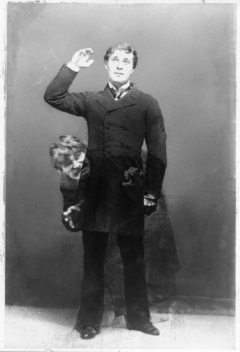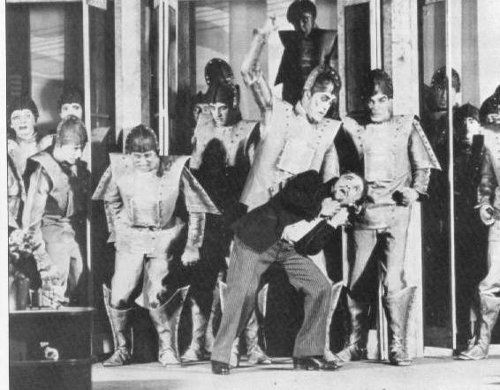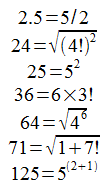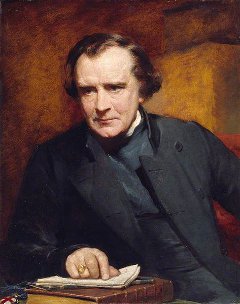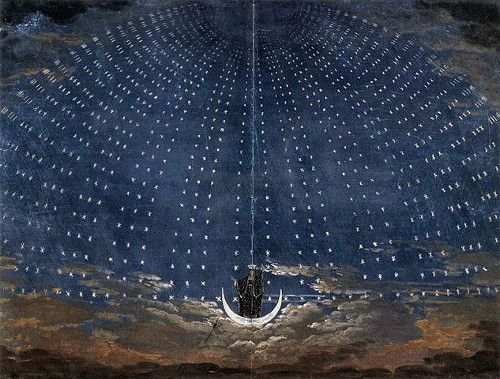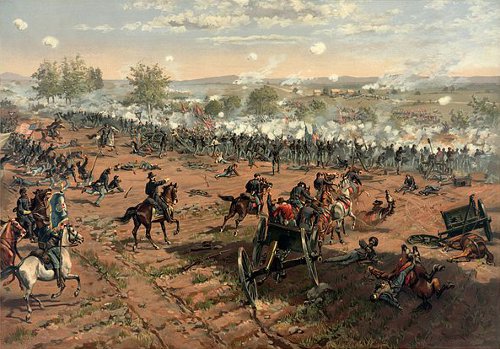
Meade brought his troops to this place where they were to win or lose the fight. At noon all was in trim, and at the sign from Lee’s guns a fierce rain of shot and shell fell on both sides. For three hours this was kept up, and in the midst of it Lee sent forth a large force of his men to break through Meade’s ranks. Down the hill they went and through the vale, and up to the low stone wall, back of which stood the foe. But Lee’s brave men did not stop here. On they went, up close to the guns whose fire cut deep in their ranks, while Lee kept watch from the height they had left. The smoke lifts, and Lee sees the flag of the South wave in the midst of the strife. The sight cheers his heart. His men are on the hill from which they think they will soon drive the foe. A dense cloud of smoke veils the scene. When it next lifts the boys in gray are in flight down the slope where the grass is strewn thick with the slain. … Oh, that there were no such thing as war!
— Josephine Pollard, The History of the United States Told in One-Syllable Words, 1884

